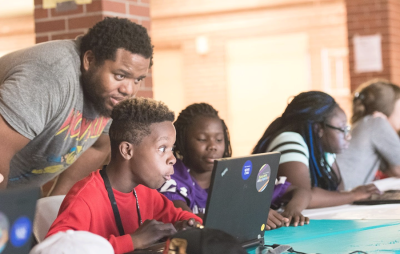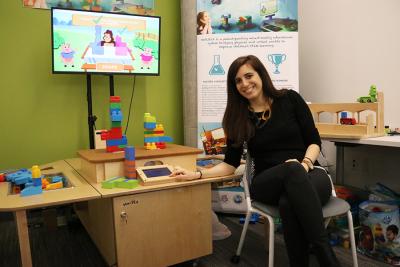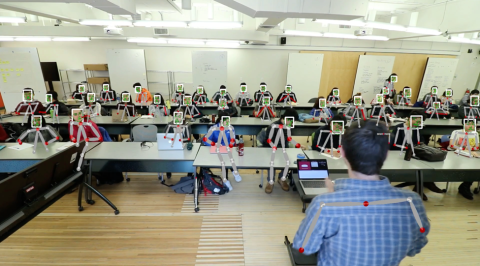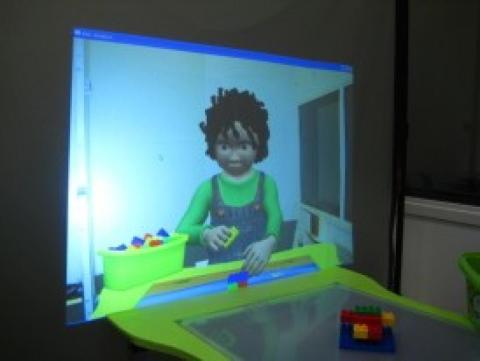Education

HCII Software Uses AI To Get Students To Do More Math
NEWSSoftware designed by members of the Human-Computer Interaction Institute's (HCII) LearnLab to improve math learning outcomes for marginalized K-12 students received a top award from the In...

Adding AI to Museum Exhibits Increases Learning, Keeps Kids Engaged Longer
NEWSHands-on exhibits are staples of science and children's museums around the world, and kids love them. The exhibits invite children to explore scientific concepts in fun and playful ways. ...

ClassInSight
PROJECTWhile much of education research is focused on student performance, this research turns the focus to the development of the teacher....

BloomBoard Collaborate
PROJECTMetals Prime, a team of five masters students from Carnegie Mellon University partnered with BloomBoard to envision a product to support educator learning...
Transformative Live-Action Role-Playing
PROJECTLive-action role-playing (larp) combines face-to-face improvisation with game rules to create collaborative, playful narrative experiences for the partici...
Technology-Enabled Role-Playing in Design
PROJECTCollege professors frequently use role-playing in class as a way to engage their students and enhance the learning experience. However, role-playing often...
Scaffolding Science Achievement in a Culturally Diverse Classroom
PROJECTIn this project, we aim to address the systematically-reduced standardized test scores of African American students compared to their Euro-American peers ...
Playtesting: Education and Practice
PROJECTPlaytesting helps game designers evaluate not whether their games are useful and usable, but whether they are playful and playable. Strong playtest skills...
Personal Informatics for Intercultural Competence
PROJECTWorking and living internationally can be a rewarding but difficult experience. This project investigates how people gain intercultural competence while d...
Lowering Barriers to Access and Enhancing Play in MOOCs
PROJECTIf Massive Online Open Courses (MOOCs) are the democratizing educational innovation that many claim them to be, then why do the largest proportion of MOOC...
IDEA: Evidence-Based Online Learning Courseware Engineering
PROJECTThis research aims to improve student learning effectiveness, efficiency, and enjoyment in online courses (aka MOOCs) by using online learning data to pro...
ETAC: Educational Technology Across Cultures
PROJECTEducational technology has the potential to transform teaching and learning across the world. However, the design of globalized technologies frequently do...


